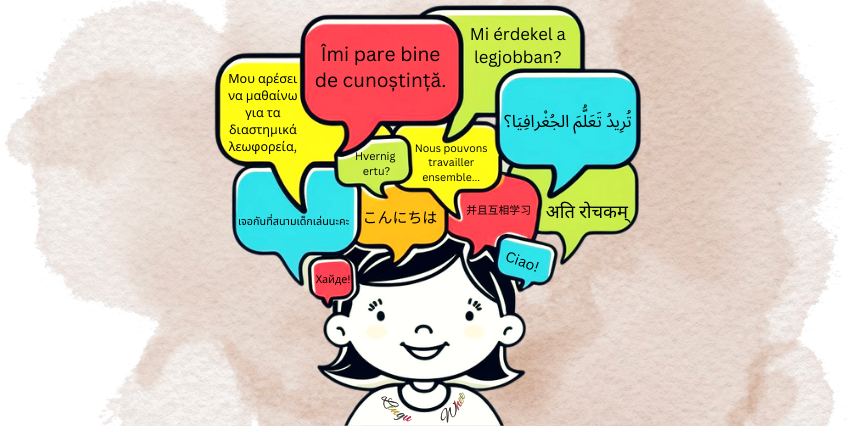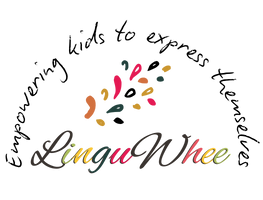The code-mixing image, explained

The blending of vocabulary and grammatical structures from multiple languages,
known as code-mixing,
is a natural developmental phase for multilingual children.
This pattern persists into adulthood, with polyglots demonstrating a learned ability to
regulate their code-switching.
Code-mixing is common in our multilingual family, with our kids producing the most inventive (and funny) cross-language expressions.
Here is the text from the image, with English translations.
Code-mixing is common in our multilingual family, with our kids producing the most inventive (and funny) cross-language expressions.
Here is the text from the image, with English translations.
Japanese: こんにちは (Hello!)
Icelandic: Hvernig ertu? (How are you?)
Romanian: Îmi pare bine de cunoștință. (Glad to meet you.)
Hungarian: Mi érdekel a legjobban? (What interests you most?)
Arabic: تُرِيدُ تَعَلُّمَ الجُغْرافِيَا؟ (Do you want to learn about geography?)
Sanskrit: अति रोचकम् (That's very interesting.)
Greek: Μου αρέσει να μαθαίνω για τα διαστημικά λεωφορεία. (I like to learn about space shuttles.)
French: Nous pouvons travailler ensemble. (We can work together.)
Chinese: 并且互相学习 (And learn from each other.)
Thai: เจอกันที่สนามเด็กเล่นนะคะ (See you on the playground.)
Bulgarian: Хайде! (Let's go!)
Italian: Ciao! (Bye!/Hello!)
